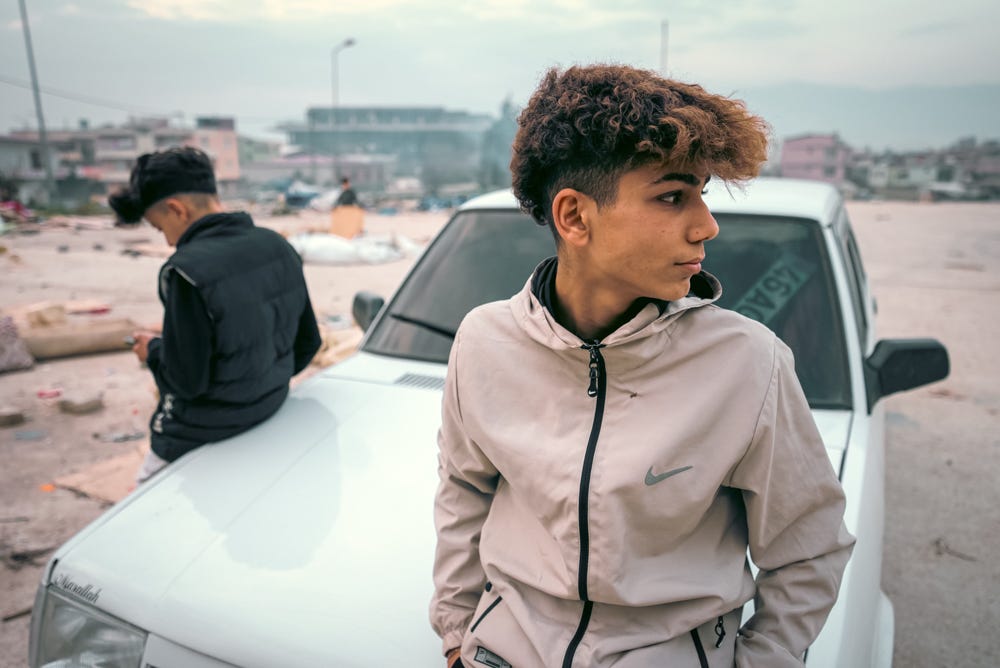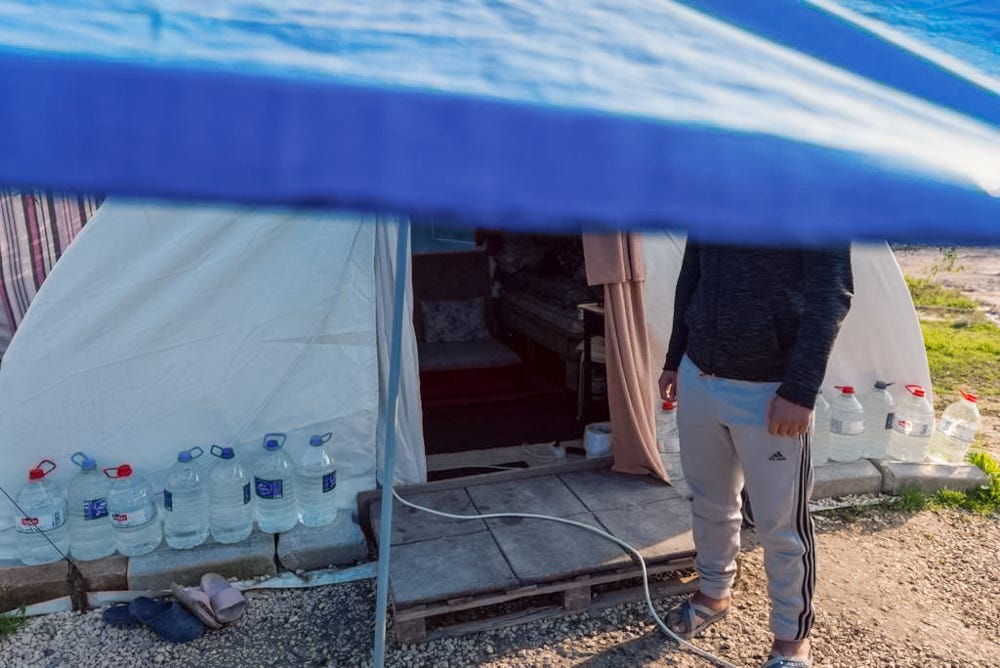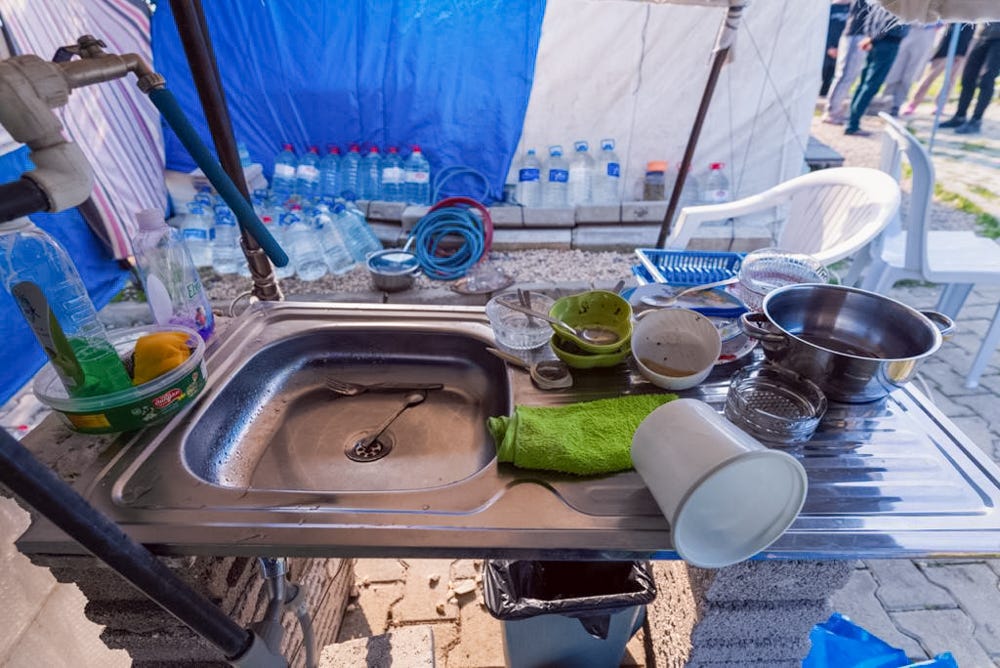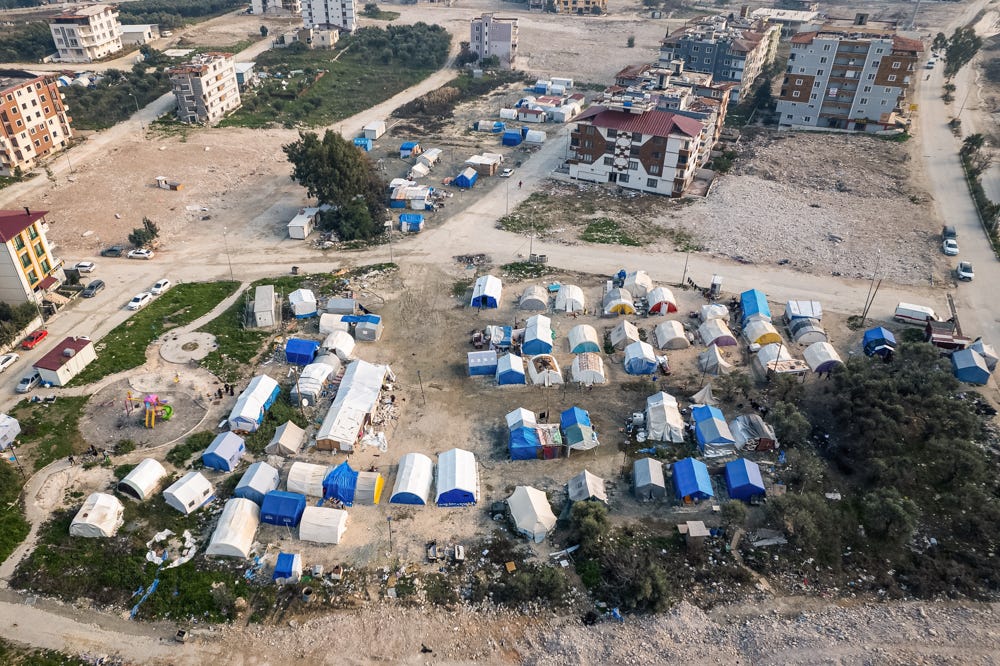"We used to have normal lives. We had homes, woke up in the mornings, and went to work. Now, everything is different. I am still alive, but it's not the same. And we don't have time to mourn. We need to get a hold of ourselves and get up because there is no one else to help us. Those who should be on our side are not on our side." - Esen Utkan, Antakya, Dec. 30
ANTAKYA – At the end of last summer, while speaking about earthquake recovery efforts, Turkish Pres. Recep Tayyip Erdoğan claimed that no one lived in tents anymore.
"We relocated all earthquake survivors to container cities," Erdoğan said on Aug. 24.
Many government officials have since echoed the statement, but over the last several weeks, Turkey recap spoke with dozens of Hatay residents still living in tents or other make-shift shelters.
Almost a year after the February 2023 earthquakes, major problems have yet to be addressed in the earthquake zone while public and media attention decreases with time.
In Antakya, one of the worst affected cities, citizens told Turkey recap that while employment opportunities are limited and infrastructure problems continue, immediate needs remain fairly basic: winter clothing, especially for children.
Residents claim the province’s health system lacks enough facilities and personnel to handle local medical care needs. Additionally, public transportation hasn't been restored in many parts of Antakya as some roads are too damaged to use, and remaining residents face regular power outages.
No land’s man
Cuma Zubi currently lives in a tent in Antakya, where his house used to stand, with his wife and four children. Zubi was a vendor at the fruit market before the earthquakes. Now he collects iron bars from rubble around the city. The money that comes from selling the scrap metal is the family’s only income.
In the months following the Feb. 6 earthquakes, Hatay almost lost a third of its former employment opportunities or about 70,000 jobs, according to a report published by the Economic Policy Research Foundation of Turkey (TEPAV) that compiled Turkey's employment data.
Zubi’s elder sons, aged 17 and 16, stopped going to school after the earthquakes. He said they could not stand being inside buildings after they were trapped under rubble for hours.
Meanwhile, the family’s younger children continue their education, and after school, they return to a tent without electricity or running water. The municipality cut the power days before the new year due to the “illegality” of the tent, Zubi said.
“We don’t have anywhere else to go,” Zubi added. “I know the conditions are not good, but at least here you lay your head somewhere. Where else will we stay?”
A double bind
Aid distribution groups do regular tours in Antakya, most recently giving out winter boots, blankets, electric heaters, and diapers. They said most aid recipients live in tents.
One of the reasons some people are still in tents is they're afraid of losing their "rent aid".
The government provided two options for citizens in the earthquake zone who lost their homes or experienced mid- to high-level damage to their properties: they could either apply for a container – in one of the state-run/-funded camps or to put one on their own land – or they could accept one year of monthly assistance payments for accommodation needs.
For the first year, homeowners were eligible to receive 5,000 liras of “rent aid”, while renters received 3,000 liras – currently about $165 and $100 USD, respectively. Though receiving rent aid requires documentation of residence and not all Hatay residents can produce those papers.
For the eligible, rent aid can be a crucial source of income in a place where employment possibilities are limited and needs are high, even if it’s less than one-fifth of the national minimum wage.
Other reasons some people prefer to avoid state-run camps involve living conditions and security problems, which have been reported by various NGOs and witnessed by Turkey recap on several occasions.
Additionally, some people refuse to leave the areas near their former homes because they fear they might lose their properties if they are not always present at the site.
According to Servet Mullaoğlu, a Hatay MP for the Republican People’s Party (CHP), rising construction costs to complete repairs even to lightly damaged homes are another reason many people still live in tents.
"The people without necessary means do not receive any help from the government for it, and they have nothing left," Mullaoğlu told Turkey recap. "So they are forced to live in tents set up next to their homes or in the gardens of their relatives in the villages. There are still thousands of tents around the province."
When asked if anything had changed in the earthquake zone in the last months, he replied: "Nothing is better. It got even worse."
"The housing problem has not been solved,” the MP continued. “[All of the damaged] buildings have not been demolished yet. They say the demolition will be completed [soon], but the foundations of buildings are still in the ground. There is also great confusion about the reserve areas. People have no idea what will happen, they feel isolated."
After the earthquakes, almost a third of the population left Hatay and about two-thirds of them later returned to their hometowns, according to information the Hatay Governor’s office shared with Turkey recap. More want to return but the current conditions won’t allow it, Mullaoğlu said.
"People need a place to stay, work, or send their children," he continued. "But we have almost none of those. The Hatay people want to return to their city, but we lost it. Their only wish for the new year is to have their homes back."
A need for "functioning" government
The Hatay MP for the Justice and Development Party (AKP), Hüseyin Yayman, told Turkey recap the earthquake response was substantial considering the magnitude of the disaster.
He said the government was “making a superhuman effort” to manage recovery efforts, and promised more would be done in the coming weeks and months. Still, Hatay residents who spoke with Turkey recap just before the new year didn't sound very hopeful.
When asked what they needed most, four friends in a Hatay cafe replied all together: a functioning government.
All group members were from Hatay, lost loved ones and relatives in the earthquakes, and had been organizing voluntary aid distributions since February.
"We have a government, but it acts like we are the enemy," said Dünya Akın, a 31-year-old guidance counselor.
"We are trying to provide the urgent necessities of the earthquake survivors via social media campaigns and personal connections,” Akın continued. “But when we go out for aid distribution, security forces try to block us or at least create inconveniences."
This comes as Akın estimated about 10 percent of the people currently living in Hatay can provide for their own needs while the remaining 90 percent are dependent on aid distributions.
During the first six months after the earthquakes, UN agencies reached over 6 million people in the earthquake zone. Their efforts included food assistance, hygiene kits, container houses, school supplies, empowerment of women, psycho-social support and more.
UN Resident Coordinator to Turkey Alvaro Rodriguez stated in August that over 9 million people, including 4 million children, were still in need of support.
"My family has the privilege to be self-sufficient right now, but not everyone has this luck," Akın said. "Winter has arrived, but there are no proper clothes. Kids are without boots and socks.”
She added, “There are lots of stray dogs and cats around, and they are starving. Scabies, lice, fleas, ticks, and eczema run rampant, yet the healthcare facilities are still insufficient, and the medicine supply is inadequate."
Don’t get sick here
Esen Utkan, another member of the voluntary aid distribution group, told Turkey recap she took her 10-year-old sister to the hospital multiple times due to the unclean drinking water, highlighting the ongoing lack of potable water in Hatay.
"My sister got water poisoning three times," Utkan told Turkey recap. "We couldn't find a vehicle, and the roads are terrible. There should supposedly be a bus, but you have to wait for hours. Ultimately, we took a taxi to a private hospital every time since it's the only decent place."
"We had the means to do that," Utkan continued. "But there are people who cannot. There is a common advice here: don't get sick. If you do, there is no hospital for us. This is the shame of our country."
Separately, problems with the electricity grid continue to plague the province, according to Ahmet Emir, a 23-year-old Hatay resident.
"Just today, the lights went out four times where I live," Emir said. "One of our relatives recently lost all of his home appliances due to the power outages. This man is already an earthquake survivor and needs to pay 150,000 Turkish liras for this damage."
While reporting in Antakya in recent weeks, Turkey recap has experienced several power outages, most of them city-wide. The latest one happened during last week’s heavy rains, which also flooded most of the streets in the city center and some container camps.
Even the top officials of the province didn’t have power in their offices, as we witnessed during an interview.
And still the current hardships remain small compared to what many lost, and what many will think about when the earthquake anniversary comes in a few weeks.
In the cafe, while we were talking to the group of friends about the city’s ongoing problems, Utkan, recalled the last night she spent with her fiancé.
“I was supposed to go to breakfast with him that day,” she said, referring to Feb. 6. “We were together the night before and planned to eat something before work. But I woke up to an earthquake and lost him.”
“But I still try to do something for people,” she continued. “So, why don’t others take on responsibilities, especially those who are supposed to?”
This newsletter is supported by readers via Substack and Patreon. Paid subscribers get full access to our recaps, reports, members-only Slack and more. We also have pun-tastic merch. All proceeds go towards sustaining our journalism.
Turkey recap is an independent news platform produced by the Kolektif Medya Derneği, an İstanbul-based non-profit association founded by our editorial team to support and elevate news media and journalists in Turkey.
Get in touch: send pitches, queries and feedback to info@turkeyrecap.com.
Diego Cupolo, Editor-in-chief @diegocupolo
Gonca Tokyol, Editor-at-large @goncatokyol
Ingrid Woudwijk, Managing editor @deingrid
Verda Uyar, Digital growth manager @verdauyar
Sema Beşevli, Editorial intern @ssemab_
Onur Hasip, Editorial intern @onurhasip










